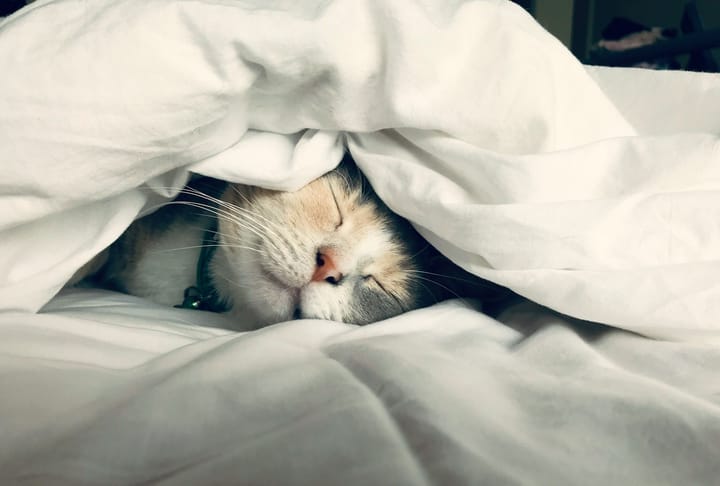Your body knows how to rest. But we’ve trained it to stay alert.

Sleep used to be sacred.
A return.
A surrender.
A slow unfurling into the dark arms of the night.
Now?
Sleep is a project.
An optimization task.
One more thing to get right.
We track it.
Hack it.
Outsource it to supplements and screen filters.
But we’re still tired.
Not the kind of tired a nap fixes.
The kind of tired that comes from living against our biology.
You were not designed for permanent alertness.
But everything in your environment—from your inbox to your timeline—says otherwise.
Here’s the quiet truth:
Insomnia isn’t always a problem.
Sometimes, it’s a signal.
That your body doesn’t feel safe.
That your nervous system doesn’t know it’s allowed to let go.
So before we throw melatonin at the wound—let’s ask a better question.
What are we so afraid will happen if we stop?
If we fall?
If we let go of the need to be in control… even in our dreams?
Yes, the science matters. (Huberman gets it right.)
But let’s not treat it like a checklist.
Let’s use it like a reverent ritual.
Light as the First Prayer
- Get morning light on your skin within 1–2 hours of waking.
- Let it hit your eyes, your retinas, your soul.
- This is how your circadian rhythm remembers what time it is. And who you are.
Darkness as the Descent
- Dim the lights 2–3 hours before bed.
- Use red light. Let your environment whisper “rest is coming.”
- Ditch the phone. Blue light is not just disruptive—it’s distracting you from yourself.
Cool the Body to Call the Soul
- Take a warm bath 1–2 hours before bed (yes, warm). It helps your core temperature drop.
- Sleep in a room that’s cool and quiet (15–18°C). You’re mimicking the caves we used to rest in.
Still the Inner Chatter
- Try 4-7-8 breathing. Or the physiological sigh.
- Not to “get sleepy”—but to remind your body: you’re not in danger anymore.
- Practice Non-Sleep Deep Rest (NSDR) or yoga nidra if sleep won’t come. Stillness counts too.
Support (not sedate)
- Magnesium glycinate (200–400mg)
- L-Theanine (100–400mg)
- Apigenin (50mg)
- Tiny dose of melatonin (0.3–1mg)—more isn’t better
These are cues, not crutches. Use them to support, not override, your natural rhythm.
What to Stop Believing
- That sleep is a badge of productivity.
- That you can “force” rest.
- That caffeine doesn’t affect you after 4pm (it does).
- That alcohol “helps you sleep” (it doesn’t—it sedates and fragments REM).
- That resting is weakness.
(That last one may be the deepest myth to break.)
But here’s the core idea:
You don’t need more discipline.
You need permission.
To turn off.
To go slow.
To not answer one more message.
To let the world go on without you—for just one night.
Buzz Moment
Insomnia isn’t a sleep problem.
It’s a safety problem masquerading as one.
Tonight, before bed—don’t optimize.
Just sit in the dark.
Breathe.
And say quietly:
“Nothing is required of me now.”
Repeat it until your body believes you.
Sleep is not a task.
It is a return.
And your body remembers the way—if only you’ll let it.
